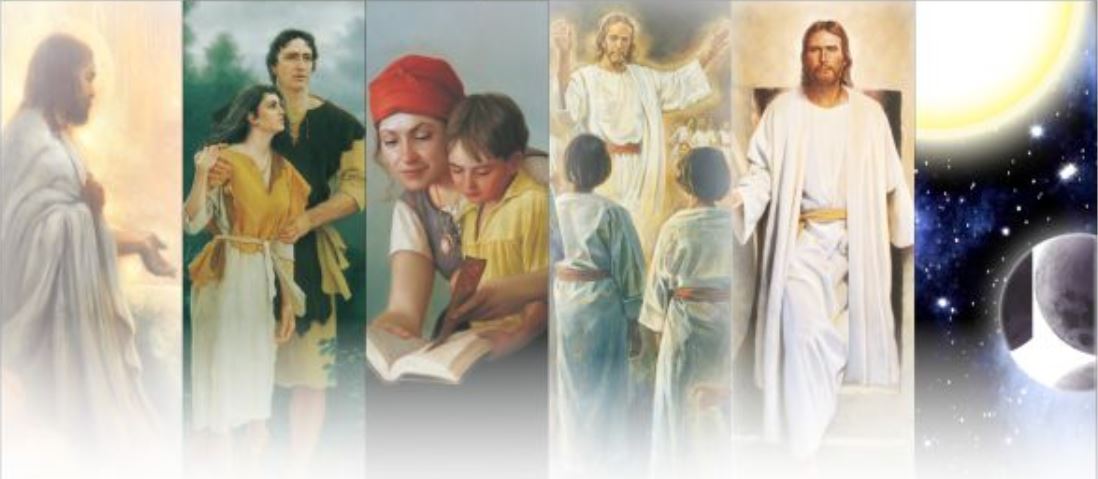To accompany your Come Follow Me study for March 31-April 6
In addition to reading this section, you may want to read the related commentary:
- Chapter 12: Doctrine and Covenants 29 (churchofjesuschrist.org)
- Joseph Smith’s Revelations, Doctrine and Covenants 29 (churchofjesuschrist.org)
You may also enjoy the following video:
There are also several excellent short videos available within the Come Follow Me manual for this section.
If you would like a Kahoot game related to this material, which you could use with your family or class, click here: https://create.kahoot.it/share/doctrine-and-covenants-29/28e5ab8c-bfef-4b1a-ad32-1676be59298a. To use it with a group, after clicking on this link, you will need to log into Kahoot, creating a free account if you have not done so previously, then click on the blue “Host Live” button or the gray “Assign” button, depending on how you wish to use the Kahoot. Some of the Kahoot questions may presuppose that the player has read through the suggested answers to the following Points to Ponder and at least has browsed the Institute student manual as well.
Points to Ponder in Doctrine and Covenants 29
1. Section 29 is easily the richest doctrinal revelation we’ve encountered thus far in the Doctrine and Covenants. It was designed to answer questions and settle doctrinal controversies among some of the early Latter-day Saints. What do you consider the most important points it teaches about each of the following subjects?
a. The pre-mortal life
b. The creation
c. The fall of Adam and Eve
d. Mortal life
e. The atonement of Christ
f. The resurrection
g. The final judgment
2. D&C 29 is also the most extensive prophetic revelation thus far in the Doctrine and Covenants. What do you consider the most important points it teaches on each of the following points?
a. The gathering
b. Trials to precede the Second Coming
c. Events associated with the Second Coming
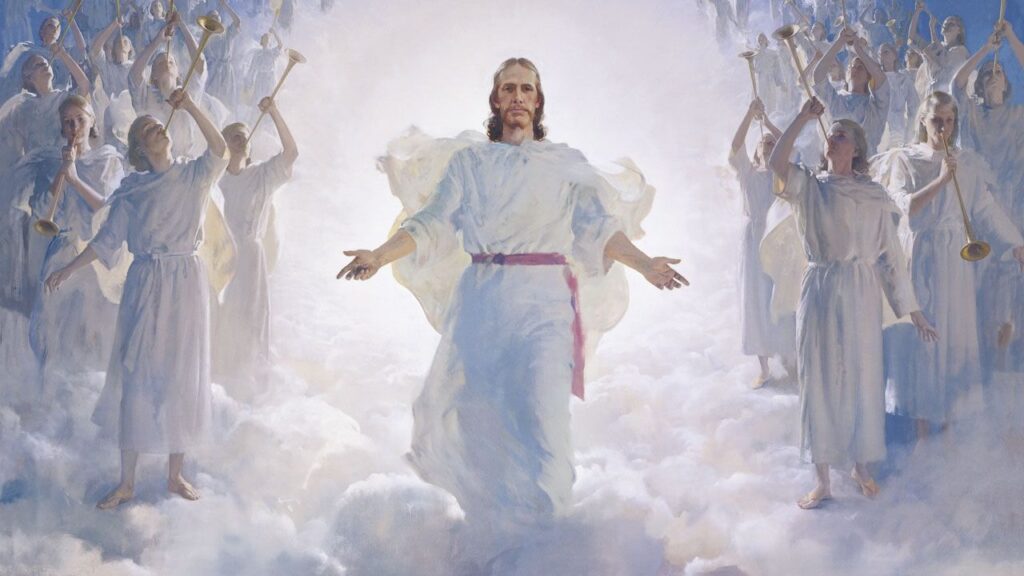
3. What are the most important preparations one could make to make the prophetic future less intimidating?
4. How could you help a member who was concerned about the numerical superiority of demons compared to mortals on the earth? (A third of the host of heaven was cast out to the earth as Satan’s followers. There are only about 7.4 billion people on the earth today, but it is estimated that over 108 billion have lived upon it since time began. That would mean that even if no more were ever born, there would still be over 54 billion evil spirits working against us! What can you say to make that a less fearsome thought?)
5. What does the Lord mean when He says He has never given a temporal commandment? Isn’t the Word of Wisdom a commandment to avoid harmful temporal substances? Isn’t tithing a commandment to pay very temporal money to the Church? And isn’t our entire welfare program designed to meet the temporal needs of members? Explain.
6. What possibility does the Lord hold out in D&C 29 that the wicked will repent sufficiently that the prophesied plagues and destructions won’t be necessary? What verse would you cite in your answer?
7. What implications does D&C 29:6 have for group prayer?
8. What is the purpose of the temple prayer roll? Who can and should access it, and how?
9. Doctrine and Covenants 29 speaks of the gathering of the elect. What are the major ways we can participate in this gathering today?
10. Doctrine and Covenants 29 outlines events preceding the Second Coming. How can we prepare spiritually and temporally for these events without becoming fearful?
11. Doctrine and Covenants 29 emphasizes the importance of little children in God’s plan. How can we better emulate childlike qualities to progress spiritually?
12. What else in D&C 29 do you consider worth pointing out?
Possible answers to Points to Ponder in Doctrine and Covenants 29
1. Section 29 is easily the richest doctrinal revelation we’ve encountered thus far in the Doctrine and Covenants. It was designed to answer questions and settle doctrinal controversies among some of the early Latter-day Saints. What do you consider the most important points it teaches about each of the following subjects?
a. The pre-mortal life
- We had agency before we were born. Recognizing that we exercised agency before birth can inspire confidence in our ability to choose righteousness now, reinforcing our commitment to follow Christ.
- 1/3 of the hosts of heaven used their agency to rebel.
- Those who rebelled were cast out of heaven
b. The creation
All things, including us, were created spiritually before they were created temporally. Understanding the spiritual creation underscores the sanctity of all creation, encouraging us to respect and care for the earth and all living things as part of God’s divine plan.
c. The fall of Adam and Eve
Adam yielded to temptation, transgressed God’s commandment, and was cast out of heaven, thus becoming spiritually “dead.” (But it does not use the word “sin.” Latter-day Saints view Adam’s transgression as being the best choice among available options, once Eve had been deceived into partaking of the forbidden fruit. God planned for it to happen this way, so that Adam and Eve and their descendants could have mortal life and the opportunities for growth that it provides.) Recognizing the Fall as a necessary step in God’s plan helps us appreciate the depth of Christ’s Atonement, motivating us to repent sincerely and strive for personal growth.
d. Mortal life
- It is part of God’s plan that Satan tempt us in mortality, as we could not know the sweet without the bitter.
- Angels are sent from heaven to teach men the plan of salvation with its offer of repentance and redemption through faith in Christ.
- Men have agency to follow God or Satan and will receive wages of “whom they list to obey.” No one is predestined to salvation or damnation, as some denominations were teaching in Joseph Smith’s day. Viewing mortality as a time to prepare to meet God encourages us to focus on spiritual growth, service, and aligning our will with God’s commandments.
e. The atonement of Christ
- Christ is merciful.
- Little children are redeemed through the atonement without the need for repentance. They cannot sin until they “begin to become accountable,” at a yet unspecified age.
- Those with understanding are required to repent to avail themselves of the benefits of the atonement.
- Understanding that Christ’s Atonement is for everyone can foster greater compassion and inclusivity, reminding us of our infinite worth and the potential for redemption in all.
f. The resurrection
- The dead who “died in Christ” will come forth to receive a crown of righteousness and to be with Christ forever and be one with Him.”
- Before the earth passes away, all the dead will be resurrected.
- Not one hair will be lost.
- Belief in the Resurrection offers solace during bereavement and encourages us to live with an eternal perspective, valuing relationships and righteous living.
g. The final judgment
- The original twelve apostles will judge all the righteous and only them. This suggests that their role is not to determine who is righteous and who is not but to officiate at what is essentially an “awards ceremony” for those who have qualified to be rewarded.
- The righteous will be gathered on the Lord’s right hand unto eternal life, while the wicked will depart into “everlasting fire, prepared for the devil and his angels.”
- The Lord instructs the saints to remember that not all His judgments are given unto men. There was additional information about eternal rewards and punishments given in D&C 19 and more was to come in D&C 76, 131, and 132.
2. D&C 29 is also the most extensive prophetic revelation thus far in the Doctrine and Covenants. What do you consider the most important points it teaches on each of the following points?
a. The gathering
- The humble who will listen to the gospel message and call on the Lord in mighty prayer will be gathered, as a hen gathers her chicks.
- The gathering is to be “unto one place upon the face of this land.” While to early Latter-day Saints that meant the land of Zion, which was later to be revealed to be in Missouri, and while in the future that may well be the center of the Lord’s work, the Church’s current emphasis is that saints are to gather within their own stakes in every nation of the earth.
- The gathering is to provide a preparation and protection for the saints when tribulation and desolation are sent upon the wicked.
b. Trials to precede the Second Coming
- Signs in heaven—the sun to be darkened, the moon turned into blood, and the stars to fall.
- Weeping and wailing
- A great hailstorm to destroy the crops. (People may wish they had some food storage!)
- Plague of flies
- Gruesome description of flesh falling from bones, eyes from sockets, and the wicked being devoured by wild beasts
c. Events associated with the Second Coming
- “The hour is nigh and the day soon at hand.”
- The wicked will be burned and “the great and abominable church” will fall.
- The Savior will come with power and great glory, with all the hosts of heaven—in other words, our righteous departed friends will be among them! If we’ve passed on by then, we will be among those who come with the Savior and will be blessed to be resurrected at that time.
- He will dwell in righteousness with men on earth a thousand years.
- At the end of the 1000 years men will again begin to deny their God, but after a “little season” God will consume the earth and there will be a new heaven and a new earth.
3. What are the most important preparations one could make to make the prophetic future less intimidating?
- The spiritual preparations are by far the most urgent, so that we’ll be among those qualified for divine protection.
- Some temporal preparation—such as food storage, getting out of debt, having a financial reserve, etc., can also be wise.
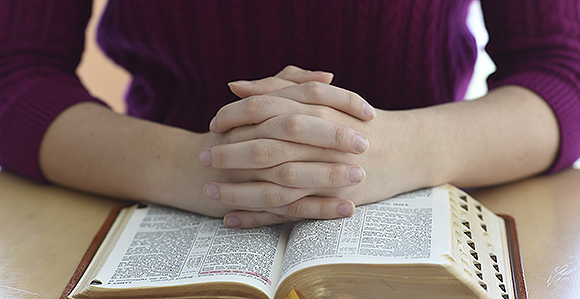

4. How could you help a member who was concerned about the numerical superiority of demons compared to mortals on the earth? (A third of the host of heaven was cast out to the earth as Satan’s followers. There are only about 7.4 billion people on the earth today, but it is estimated that over 108 billion have lived upon it since time began. That would mean that even if no more were ever born, there would still be over 54 billion evil spirits working against us! What can you say to make that a less fearsome thought?)
- Those evil spirits can have no power over us unless we allow them to have it by our transgression. One righteous follower of Christ has more power than all the combined forces of the adversary.
- It is not just mortals who are in combat against Satan and his hosts, but all the unseen righteous beings in the spirit world, both pre-mortal and post-mortal, in addition to God Himself!) As Elisha told his young servant, when it appeared they were surrounded by a hopelessly superior Syrian army, “those who are with us are more than those who are with them.” (2 Kings 6:16)
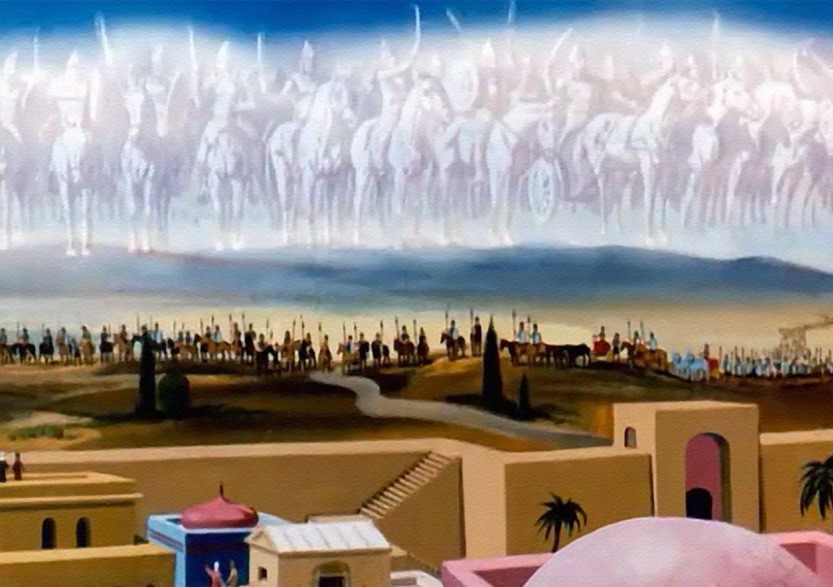
5. What does the Lord mean when He says He has never given a temporal commandment? Isn’t the Word of Wisdom a commandment to avoid harmful temporal substances? Isn’t tithing a commandment to pay very temporal money to the Church? And isn’t our entire welfare program designed to meet the temporal needs of members? Explain.
The Lord is saying that all commandments in the final analysis are for our spiritual benefit. The Word of Wisdom, for example is not primarily so that we won’t die from alcoholism or lung cancer but so that we’ll qualify for the blessings the Lord has for the obedient. The Lord doesn’t need our tithing money. But we very much need the spiritual blessings which come from paying it. Even the welfare program has a primarily spiritual purpose. It is hard for people to focus properly on spiritual topics if they are hungry or out of work.
6. What possibility does the Lord hold out in D&C 29 that the wicked will repent sufficiently that the prophesied plagues and destructions won’t be necessary? What verse would you cite in your answer?
D&C 29:17 seems to say there is no chance whatsoever. If mankind chose to repent, the Lord, of course, would not have to send forth the threatened plagues upon them. But He says rather directly in this verse that they will not repent.” So, the tribulations must come.
7. What implications does D&C 29:6 have for group prayer?
This passage seems to suggest there is a special power when a group of righteous saints prays together, “being united in prayer.” This would seem to apply to the following situations, among others:
- Family prayer
- Prayer in meetings
- Prayer offered in the temple

8. What is the purpose of the temple prayer roll? Who can and should access it, and how?
An August 25, 2020 news release from the Church explained:
It is a common practice among many people of faith to pray for loved ones when they face illness, afflictions or other challenges. In many faith traditions, this includes praying collectively for those with specific needs. The scriptures record multiple examples when Jesus Christ prayed in groups and admonished those present to also pray.
In temples of The Church of Jesus Christ of Latter-day Saints, this practice is observed. Members are invited to place the names of those in need on what is known as the “prayer roll” of the temple. Members then unite their faith in asking Heavenly Father to bless those persons whose names are on the prayer rolls.
The First Presidency has announced that an online system has been created to allow members to send the names of family or friends to the temple, where those names will be placed on the prayer roll. Requests to place a name on the temple prayer rolls can now be made by visiting any temple’s information page and clicking the prayer roll link. Requests can also be made through the “Temples” section of the Member Tools mobile app (beginning August 25, 2020 for Android and September 1, 2020 for iOS). Once the names are entered, they will be sent to that temple (or to the nearest operating temple if that temple is closed).
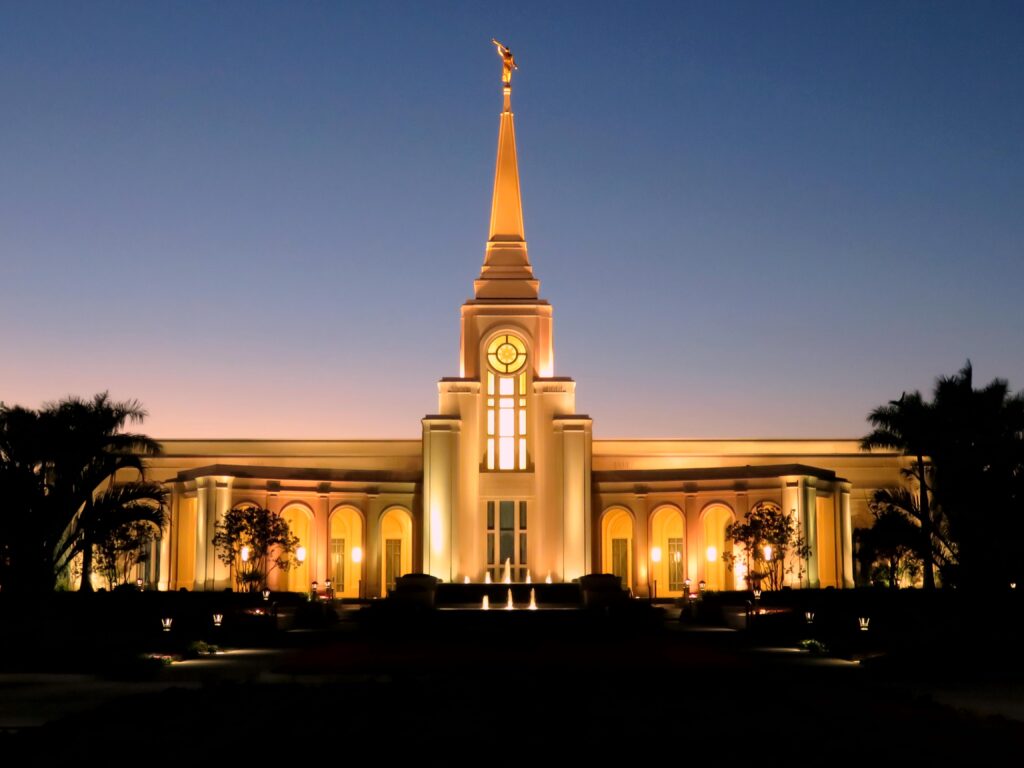
9. Doctrine and Covenants 29 speaks of the gathering of the elect. What are the major ways we can participate in this gathering today?
Engaging in missionary work, temple service, and personal ministering efforts allows us to contribute to the gathering, deepening our testimony and connection to the global Church community.
10. Doctrine and Covenants 29 outlines events preceding the Second Coming. How can we prepare spiritually and temporally for these events without becoming fearful?
By strengthening our faith through prayer, scripture study, and obedience, and by following prophetic counsel on temporal preparedness, we can face the future with confidence and hope.
11. Doctrine and Covenants 29 emphasizes the importance of little children in God’s plan. How can we better emulate childlike qualities to progress spiritually?
Cultivating humility, teachability, and pure faith, as exemplified by children, can enhance our spiritual growth and relationship with Heavenly Father.
12. What else in D&C 29 do you consider worth pointing out?
Perhaps:
29:4-5: Another reminder that we are to declare the gospel with “the sound of rejoicing” and should life up our hearts “and be glad.”
Most other major points of this section seem to fall under one of the previously considered topics.
